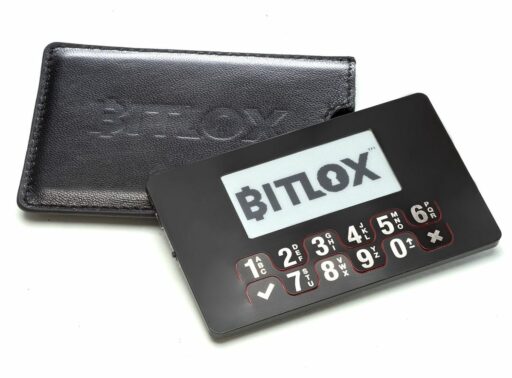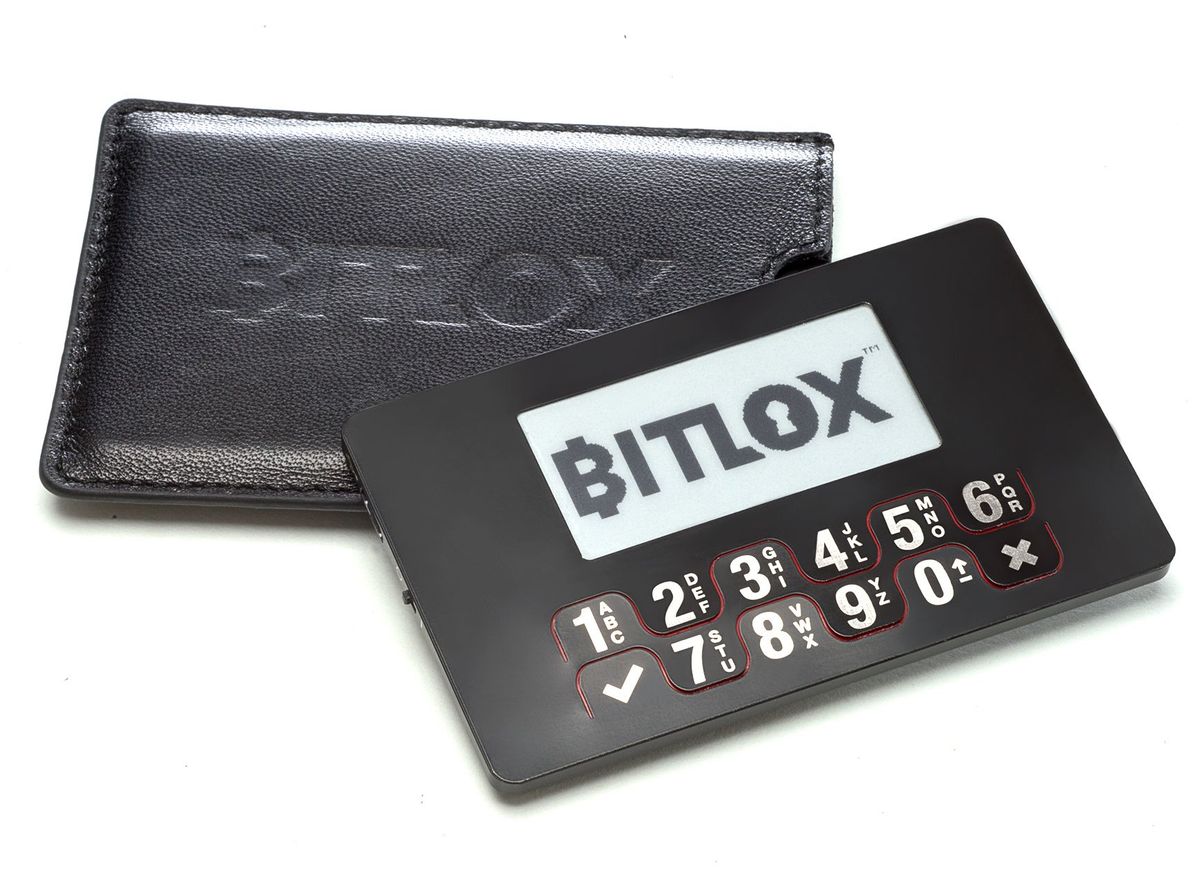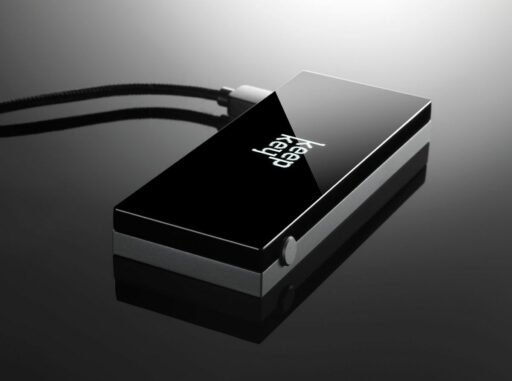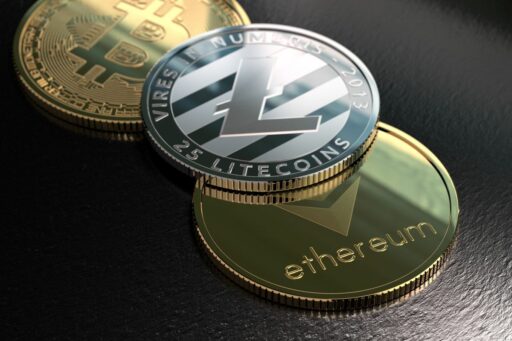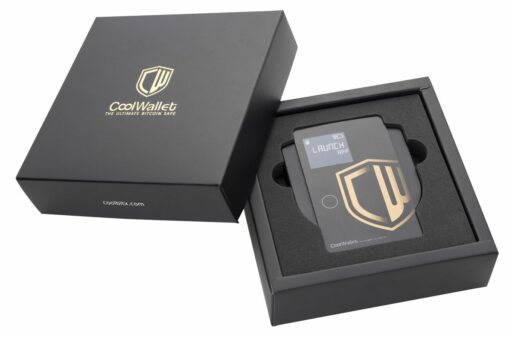When stepping into the rapidly expanding universe of gaming and cryptocurrencies, grasping the intricacies of crypto wallets becomes not just an advantage, but a necessity. For gamers, these digital wallets are more than just a place to hold virtual coins; they are your ticket to an immersive experience, enabling you to buy, sell, and trade in-game assets, access exclusive content, and even earn real-world value through play-to-earn games. Let’s dive into the essentials of crypto wallets from a gamer’s perspective, including how they work, the types available, and best practices to ensure their safety.
Key Takeaways
- Crypto wallets do not store cryptocurrencies directly; they hold the keys that allow access to digital currencies on the blockchain.
- Understanding the difference between hot wallets (online) and cold wallets (offline), including hardware wallets, is crucial for asset security.
- Securing private keys and using recovery phrases are essential for maintaining access to your crypto assets and preventing loss.
- Crypto wallets can enhance gaming experiences by facilitating in-game economies, exclusive content access, and play-to-earn opportunities.
- Regular backups, safe storage solutions, and staying informed about security trends are best practices for managing crypto wallets.
The Anatomy of a Crypto Wallet

Understanding Public and Private Keys
At the heart of every crypto wallet lies the critical duo of public and private keys. Your public key is akin to an address that others use to send you digital assets. It’s safe to share and can be likened to your home’s address or an email. Conversely, your private key is the highly confidential counterpart that grants you access to your assets. It’s essential to keep it secret, as it functions similarly to the key to your home or your email password.
The security of your crypto assets hinges on the safeguarding of your private key. It’s the single most crucial piece of information that must be protected to maintain control over your digital wealth.
Understanding the relationship between these keys is fundamental:
- Public Key: Used to receive funds; can be shared publicly.
- Private Key: Used to authorize transactions; must remain private.
Failure to secure your private key can lead to unauthorized access and potential loss of assets. Therefore, it’s imperative to use secure methods for storing and handling your private keys, such as hardware wallets or secure password managers.
The Role of the Blockchain Interface
Crypto wallets serve as a crucial interface to the blockchain, enabling users to manage their digital assets effectively. They provide a user-friendly way to interact with the complex technology of blockchains, which are the backbone of cryptocurrencies and various digital economies.
A crypto wallet’s primary function is to securely store the keys necessary for accessing and transacting cryptocurrencies on the blockchain.
By using a crypto wallet, individuals can perform a range of actions such as sending and receiving digital currencies, participating in staking, and engaging in smart contract operations. The wallet’s interface simplifies these processes, making them accessible to users without requiring deep technical knowledge.
Here are some key features of blockchain interfaces provided by crypto wallets:
- Simplified transaction processes
- Secure management of public and private keys
- Real-time balance and transaction history
- Support for multiple cryptocurrencies
- Integration with decentralized applications (DApps)
Understanding the role of the blockchain interface is essential for anyone looking to navigate the world of digital currencies with confidence.
Crypto Wallets vs. Traditional Wallets
Unlike traditional wallets that hold physical currency, crypto wallets are designed to store digital assets securely. They don’t actually ‘hold’ your cryptocurrency in the same way a leather wallet holds cash; instead, they provide the necessary tools to interact with the blockchain, such as managing your public and private keys.
- Hot Wallets are akin to a daily spending account, offering convenience for regular transactions but at a higher risk due to their constant internet connection.
- Cold Wallets serve as a secure vault, ideal for long-term storage of digital assets with minimal exposure to online threats.
Crypto wallets empower users to manage their digital assets with autonomy, a stark contrast to the custodial nature of traditional banking.
Understanding the differences between wallet types is crucial to effectively manage and secure your digital assets. As the cryptocurrency landscape evolves, it’s important to explore the best crypto wallets, platforms, and security measures for savvy investors and traders.
Types of Crypto Wallets and Their Uses

Hot Wallets: Online and Convenient
Hot wallets are the go-to choice for those prioritizing ease of access and speed in their cryptocurrency transactions. These online wallets are ideal for frequent trading and payments, but it’s crucial to be aware of their vulnerability to security threats due to constant internet connectivity.
- Ease of Access: Immediate transaction capabilities.
- Convenience: Suitable for active trading and regular payments.
- Security Risks: Higher exposure to online threats.
While hot wallets offer unparalleled convenience, users must be diligent in implementing security measures to protect their digital assets from potential cyber-attacks.
Examples of hot wallets include MetaMask and Trust Wallet, which are widely used due to their user-friendly interfaces and quick setup. However, users should be cautious and understand the risks involved with storing private keys on internet-connected devices. Regular security practices, such as updating software and using strong, unique passwords, are essential to safeguard your investments.
Cold Wallets: Enhanced Security Offline
Cold wallets provide a fortress-like security for your cryptocurrency by keeping your private keys offline, away from the prying eyes of online hackers. These wallets are ideal for the long-term storage of high-value digital assets, ensuring that your investments are not exposed to cyber threats that commonly plague internet-connected wallets.
Cold wallets come in various forms, including hardware devices and paper wallets. Each type offers unique features designed to protect your assets. Hardware wallets, for instance, often include PIN protection and recovery phrases, while paper wallets are a simple yet effective form of cold storage.
Here’s a quick comparison of cold wallet features:
- Hardware Wallets: Physical devices like Ledger and Trezor, with advanced security features such as PIN codes and backup recovery phrases.
- Paper Wallets: Printed QR codes representing your public and private keys, providing a straightforward and hacker-proof storage method.
Remember, while cold wallets offer enhanced security, they also require careful handling and management. Loss or damage to a hardware wallet or paper wallet can result in the irreversible loss of your assets. Therefore, it’s crucial to maintain a secure and organized storage environment for your cold wallet solutions.
Hardware Wallets: Physical Devices for Key Storage
Hardware wallets are specialized physical devices that offer a high level of security for storing cryptocurrency private keys. They are designed to be tamper-proof and immune to online hacking attempts, ensuring that your digital assets remain secure even if your computer is compromised.
These devices often come with additional security features such as PIN codes and recovery phrases. A recovery phrase allows users to restore their wallets on a new device in case the original is lost or damaged. Notably, hardware wallets like Ledger utilize advanced chips to protect against physical attacks, making them a robust choice for crypto storage.
- Ledger
- Trezor
- Keystone
Hardware wallets strike a balance between security and accessibility, making them suitable for both seasoned investors and those new to cryptocurrency.
While hardware wallets provide enhanced security, they can also introduce additional complexity. For instance, some may require specific tools or applications to operate, potentially making them less user-friendly for beginners. Despite this, the peace of mind they offer makes them a valuable tool for anyone serious about safeguarding their digital assets.
Comparing Centralized and Decentralized Wallet Options
When delving into the world of cryptocurrency, one must decide between centralized and decentralized wallet options. Centralized wallets are akin to traditional banking systems, where a third party oversees your transactions and maintains control over your funds. This can offer convenience and user-friendly services, but at the cost of relinquishing some control and potentially exposing your assets to third-party risks.
Decentralized wallets, on the other hand, empower users with full control over their private keys and, consequently, their funds. The absence of intermediaries in decentralized exchanges (DEXs) means that users can trade directly from their wallets, leveraging smart contracts and blockchain technology for secure peer-to-peer transactions.
The choice between centralized and decentralized wallets hinges on the trade-off between convenience and control. While centralized options may provide a more guided experience, decentralized wallets put the power firmly in the user’s hands, enhancing security but also demanding a higher level of technical understanding.
Here’s a quick comparison to help you decide:
- Centralized Wallets: User-friendly, third-party control, potential for enhanced services.
- Decentralized Wallets: Full user control, no intermediaries, secure peer-to-peer transactions.
Securing Your Digital Assets

The Importance of Protecting Private Keys
The private key is the cornerstone of your crypto wallet’s security. It is akin to the PIN to your bank account, and just as you wouldn’t share your bank PIN, your private key must remain confidential. Anyone with access to your private key has total control over your funds, making its protection paramount.
- Never share your private key or Seed Recovery Phrase (SRP) with anyone.
- Store your private key in a secure, offline location, such as a safe or deposit box.
- Consider physical mediums like paper or metal for storing your SRP, but be aware of risks like physical damage or loss.
Cold wallets, by keeping your private keys offline, provide a layer of security against online threats. However, it’s crucial to understand that while they protect your keys from being exposed on the internet, they are not immune to physical risks.
Remember, the responsibility of securing your private key lies with you. Implementing robust security measures and being vigilant against phishing attempts are essential steps in safeguarding your digital assets.
Backup Strategies: Seed Phrases and Recovery Options
The cornerstone of crypto wallet recovery is the seed phrase, also known as a Secret Recovery Phrase (SRP) or mnemonic. This is a series of 12-24 words generated by your wallet, which encapsulates all the private keys associated with your assets. In the event of device failure, loss, or theft, this phrase is your lifeline, allowing you to restore your wallet and regain access to your funds.
- Record your seed phrase: Write it down on paper or another durable medium.
- Store it securely: Keep it in a safe or a secure location away from potential damage or prying eyes.
- Consider redundancy: Use multiple storage methods, such as a physical backup like the BillFODL and a digital backup with trusted custodians.
Remember, the responsibility of safeguarding your seed phrase lies with you. It should never be shared with anyone, as possession of this phrase is equivalent to owning the assets it controls.
Common Threats and How to Avoid Them
In the realm of digital assets, vigilance is paramount. Phishing attacks remain one of the most prevalent threats to crypto wallets. These attacks typically involve fraudsters impersonating legitimate entities to deceive users into revealing sensitive information. To combat this, always verify the authenticity of requests and never share your private keys or recovery phrases.
Strengthening your wallet’s defenses is crucial. Utilize every available security measure, such as two-factor authentication, strong and unique passwords, and wallets with biometric security features.
Staying up-to-date with wallet software is also essential. Regular updates often include security enhancements that can protect your wallet from emerging threats. Here’s a list of best practices to secure your crypto wallet:
- Enable two-factor authentication
- Use strong, unique passwords
- Opt for wallets with biometric security
- Regularly update your wallet software
- Be wary of unsolicited requests and offers
Remember, the responsibility of storing your digital assets safely lies with you. By following these steps, you can significantly reduce the risk of falling victim to common scams.
The Gamer’s Edge: Crypto Wallets in Gaming

In-Game Economies and Asset Management
In the realm of gaming, crypto wallets play a pivotal role in managing digital assets and navigating in-game economies. These wallets serve as a bridge between the virtual world and real-world value, allowing players to securely hold, transfer, and trade in-game items that may have significant monetary worth.
- Public Key: Your in-game identity, similar to a character name or ID.
- Private Key: A confidential password securing your assets.
By effectively managing these keys within a crypto wallet, gamers can ensure the safety of their virtual treasures and enhance their gaming experience. It’s essential to understand that, unlike traditional wallets, crypto wallets don’t store currency but the keys to access and transact on the blockchain.
The strategic management of crypto wallets is integral to maximizing the potential of in-game economies and achieving real-world profitability.
Accessing Exclusive Content with Crypto Wallets
For avid gamers, crypto wallets unlock a new realm of digital experiences. These wallets serve as a gateway to exclusive in-game content, often only accessible through cryptocurrency transactions. By holding specific tokens or coins, players can gain access to unique skins, characters, or levels that are not available through traditional payment methods.
- Exclusive Skins: Limited edition cosmetic items for avatars or equipment.
- Unique Characters: Special characters with enhanced abilities or stories.
- Special Levels: Access to new or secret areas within the game.
- Early Access: Opportunity to play new games or content before the general public.
Embracing a crypto wallet in gaming not only enhances the gaming experience but also adds a layer of engagement and ownership over the digital assets acquired. It’s a step towards a more personalized and invested gaming journey.
Earning Real-World Value Through Play-to-Earn Games
The advent of play-to-earn games has introduced a paradigm shift in the gaming industry. Players can now accumulate in-game assets that have tangible value outside the virtual world. These assets, often in the form of Non-Fungible Tokens (NFTs), can be traded or sold for cryptocurrencies, which can then be converted into fiat currency.
The seamless integration of crypto wallets with play-to-earn games ensures that players are rewarded for their time and skill, not just in virtual achievements, but in assets that carry real-world economic significance.
For many, this has opened up new avenues for income, particularly in regions where traditional economic opportunities may be limited. The table below illustrates the potential earnings from popular play-to-earn games:
| Game Title | Average Monthly Earnings |
|---|---|
| Axie Infinity | $200 – $1000 |
| Decentraland | $150 – $600 |
| The Sandbox | $100 – $500 |
It’s important to note that earnings can vary based on market conditions and player involvement. As the ecosystem evolves, so too does the potential for profit. By engaging with these games, players are not just enjoying an interactive experience; they are actively participating in a burgeoning digital economy.
Best Practices for Crypto Wallet Management

Regular Backups and Safe Storage Solutions
Ensuring the safety of your crypto assets involves regular backups and implementing safe storage solutions. Backups should be kept in secure locations, away from potential threats such as hackers, physical damage, or natural disasters. It’s crucial to store your backup information in a place that is both accessible to you and protected from theft or accidents.
- Cold Wallets: Offline storage options like hardware wallets (e.g., Ledger, Keystone, Trezor) offer enhanced security against online threats.
- Physical Storage: Devices like the BillFODL provide a durable means to store seed phrases, safeguarding against physical damage.
- Secrecy of Storage: The location of your seed recovery phrase (SRP) should be known only to you to prevent unauthorized access.
The sacred rule in crypto wallet management is to never share your SRPs or your private key with anyone. This ensures that your digital assets remain under your control and are not compromised.
When considering backup strategies, it’s also important to think about the resilience of your backup methods. For instance, using a physical storage solution like BillFODL can protect your seed phrase from accidents such as a house fire. Additionally, services like Ledger Recover offer an option to fragment and distribute your seed phrase to trusted custodians, adding an extra layer of security.
Understanding and Managing Seed Phrases
A seed phrase, also known as a Secret Recovery Phrase (SRP) or mnemonic, is a crucial component for restoring your crypto wallet. It consists of 12-24 words that act as a backup for all the private keys in your wallet, enabling you to recover your blockchain addresses even without the original wallet software.
Knowing how to manage your seed phrase is essential for the security of your digital assets. It should be recorded and stored in a secure location, separate from your wallet. Never share your seed phrase with anyone, as it can be used to gain full access to your funds.
The ultimate guardian of your Secret Recovery Phrase is you. It’s not just about creating a backup; it’s about ensuring that backup remains confidential and protected at all times.
Here are some steps to effectively manage your seed phrase:
- Write down the seed phrase on a piece of paper and store it in a safe or other secure location.
- Consider using a metal backup solution to protect against physical damage like fire or water.
- Avoid storing your seed phrase digitally to prevent hacking or unauthorized access.
- Regularly check the integrity of your backup to ensure it’s still accessible and legible.
Staying Informed: Keeping Up with Wallet Security Trends
In the ever-evolving landscape of cryptocurrency, staying informed is crucial for the security of your digital assets. Regularly consulting a comprehensive guide to the best crypto wallet in 2023 can provide valuable insights into the latest security measures and trends. This includes updates on crypto apps, altcoins, Bitcoin, and blockchain technology.
Utilize every available security measure to protect your wallet. This includes enabling two-factor authentication, using strong and unique passwords, and opting for wallets that offer biometric security features.
It’s also essential to be vigilant against scams, which are prevalent in the digital currency space. Always verify the source of any communication and never share your private keys or seed recovery phrases (SRPs) with anyone unless you are certain of their legitimacy. By following these practices, you can fortify your wallet against common threats and ensure the safety of your investments.
Conclusion: Securing Your Digital Treasures
As we’ve journeyed through the essentials of crypto wallets, it’s clear that they are the linchpin of digital asset management, especially for gamers and cryptocurrency enthusiasts. From understanding the role of private keys and recovery phrases to exploring the various types of wallets and their security measures, we’ve uncovered the importance of being informed and vigilant in the digital realm. Remember, a crypto wallet is more than a tool; it’s a personal vault that requires careful handling and regular backups to safeguard your virtual wealth. Whether you’re trading in-game assets or investing in cryptocurrencies, the power of self-custody comes with the responsibility to protect and maintain access to your funds. As the digital landscape continues to evolve, staying updated on best practices and emerging technologies will be crucial for ensuring the longevity and security of your crypto assets.
Frequently Asked Questions
What is a crypto wallet and how does it differ from a traditional wallet?
A crypto wallet is a digital interface that allows you to interact with the blockchain to manage your cryptocurrencies. Unlike a traditional wallet that holds physical money, a crypto wallet doesn’t store currency but holds the keys to access and execute transactions with your digital assets on the blockchain.
What are public and private keys in the context of crypto wallets?
Public and private keys are cryptographic codes that enable transactions on the blockchain. The public key is like an address that others can use to send you crypto, while the private key is a secret code that you use to authorize transactions and access your funds. It’s crucial to keep your private key secure.
What are hot and cold crypto wallets?
Hot wallets are connected to the internet and offer convenience for frequent transactions, while cold wallets are offline storage options that provide enhanced security for your digital assets by keeping your private keys away from online threats.
What is a seed phrase and why is it important?
A seed phrase, also known as a secret recovery phrase, is a series of words generated by your crypto wallet that allows you to recover and restore your wallet and its contents on a new device. It’s crucial for backing up your wallet and maintaining access to your assets.
How can I secure my crypto wallet?
To secure your crypto wallet, protect your private keys, use strong passwords, enable two-factor authentication, regularly back up your wallet using a seed phrase, and be vigilant against phishing and other online threats.
How do crypto wallets work in the context of gaming?
In gaming, crypto wallets enable players to buy, sell, and trade in-game assets, unlock exclusive content, and participate in play-to-earn games that offer real-world value. They act as a gateway to the game’s economy and often require careful management to ensure asset security.
